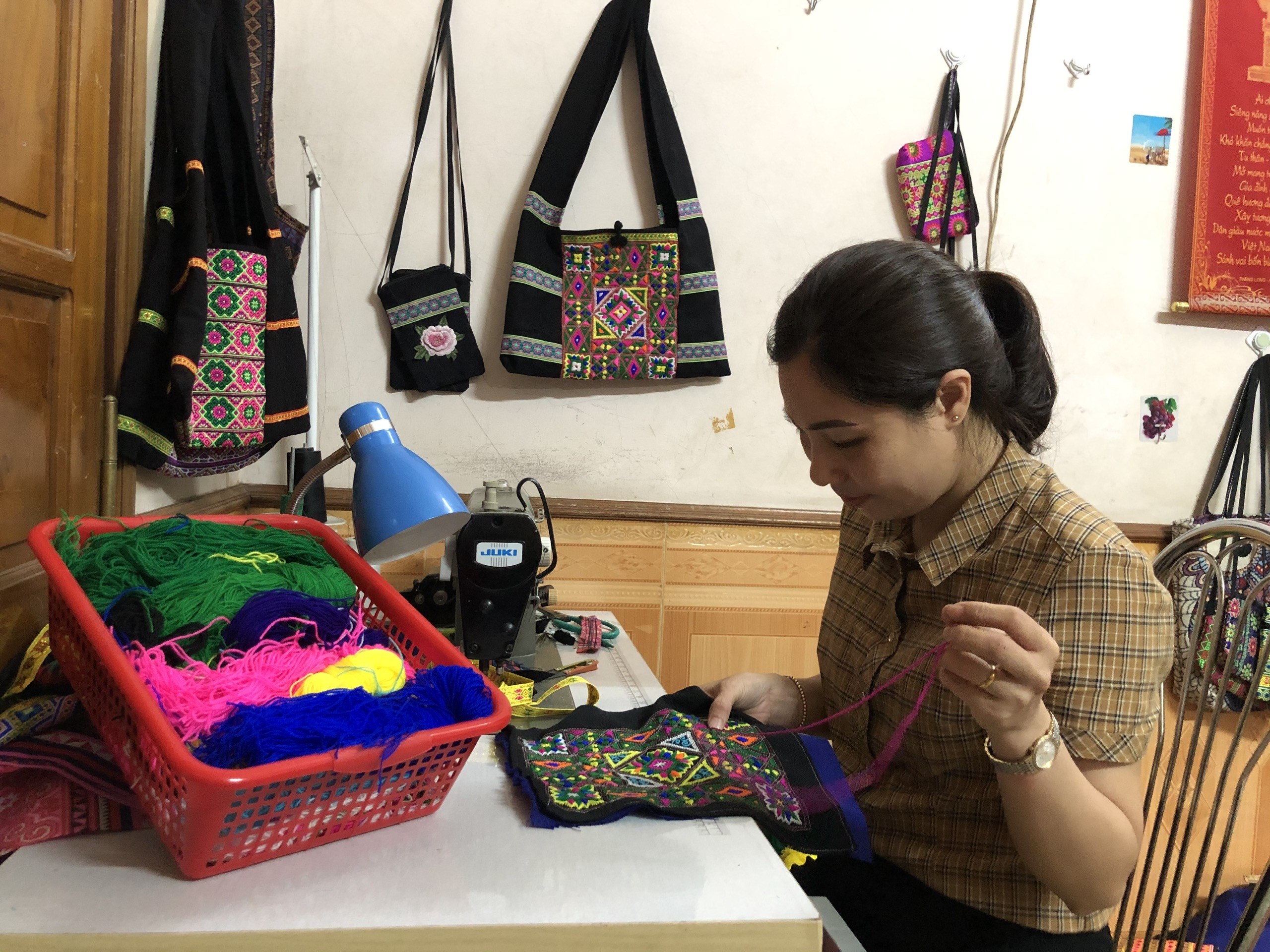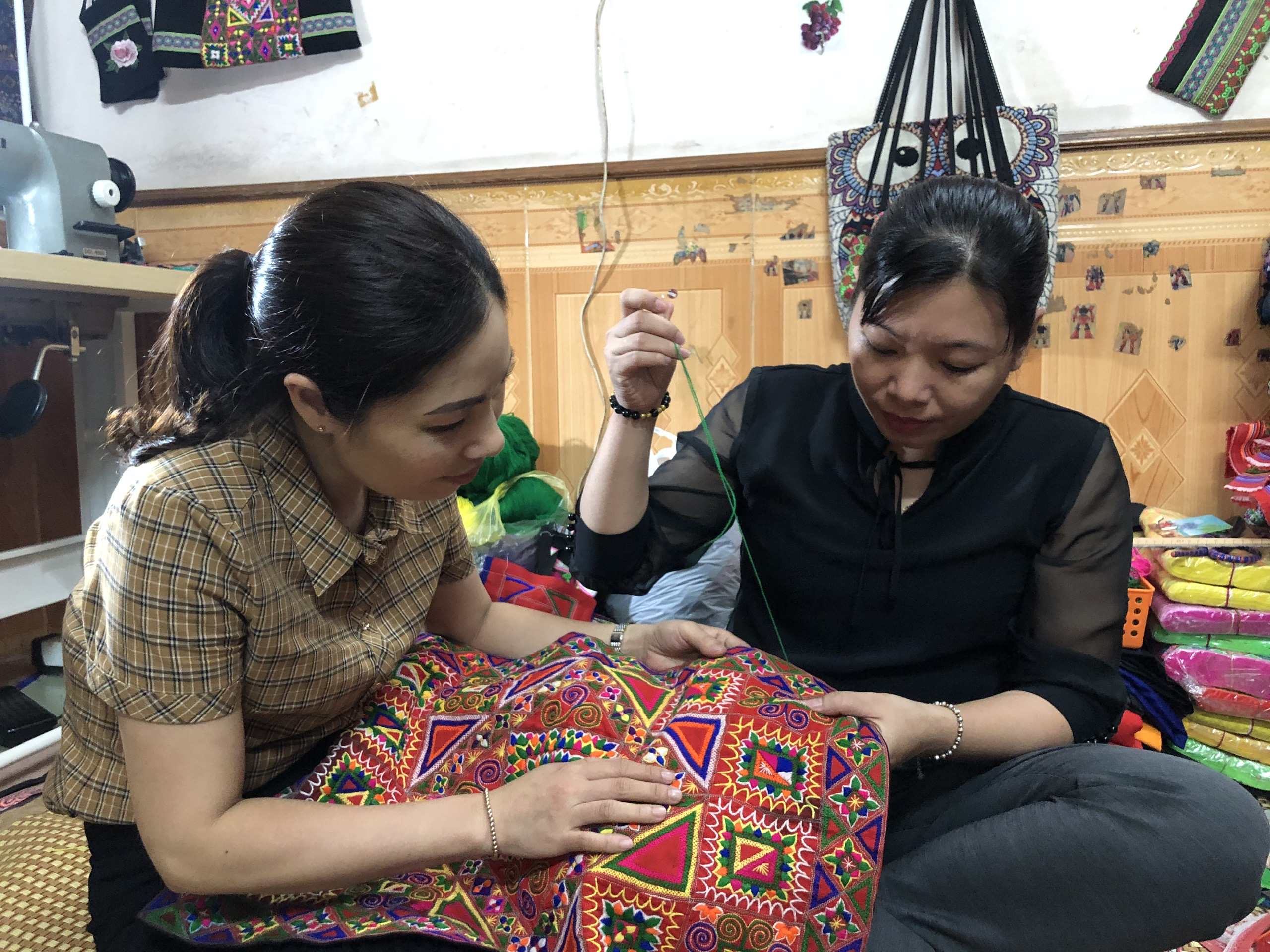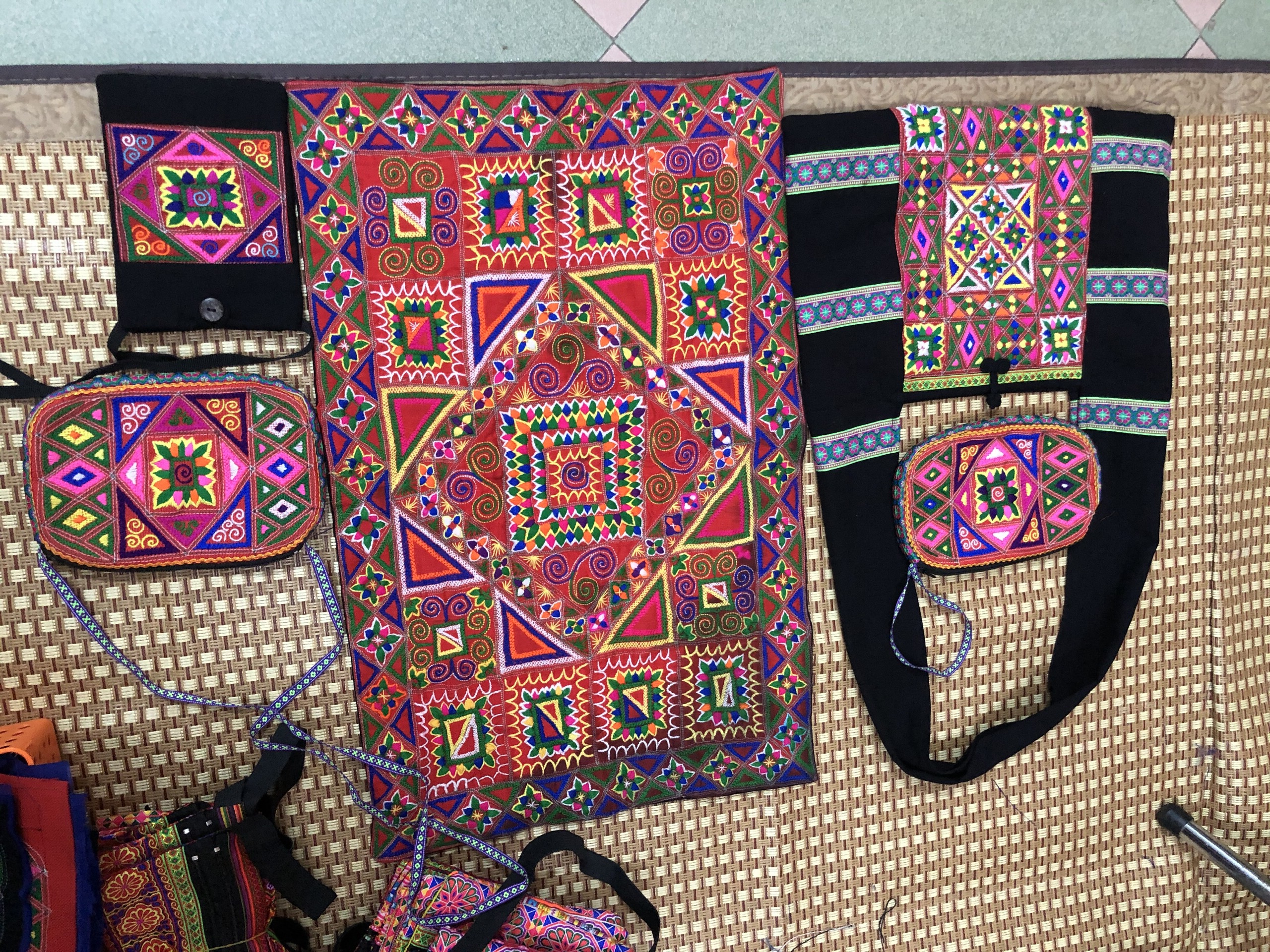
The living room in her house is utilised for working corner.
When Mai was young, he took part in a embroidery training course for women under the Women's Union of Tuyen Quang city. With her skillful and passion, she was one of good students in the class. However, at the end of the course, she decided to get married and had two children. Taking care of her family almost took up all of her time.
After more than 20 years, her life has gradually stabilised. Her first child is now studying abroad in Japan while her second child is a high-school student in the city. Therefore, she returned to her embroidery passion.

She instructs a woman to embroidery H'mong's motifs on brocade.
The living room in her house is utilised for working corner. Coloured wool rolls are placed in a separate box. Indigo fabric is also cut according to many sizes. The old sewing machine is neatly in the corner of the living room, receiving light from outside the main door to be ready to produce bags, purses and tablecloths.
Before officially start up, she spent a year researching motifs and patterns on brocade of each ethnic minority groups as well as brocade market inside and outside the province. Then, she focused on a few main items such as brocade wallets, bags, and tablecloths, etc.
Her small house has become an "overtime" address of many women in the residential group. They are instructed to embroider carefully by Mai. Everyday, each person can complete 3 products.

Brocade products imbued with cultural identities of ethnic minority people.
Mai expressed that, she uses environmentally friendly materials to produce tourism products such as indigo fabric and coconut buttons.
In addition hip-sling bags, her facility produces hundreds of products of shoulder bags and brocade tablecloths every month.
Currently, the Rural Development Sub-Department of Tuyen Quang has supported her establishment to consume brocade products at some major tourist destinations of Lam Binh, Na Hang, Chiem Hoa, Son Duong districts.

Comment
Print